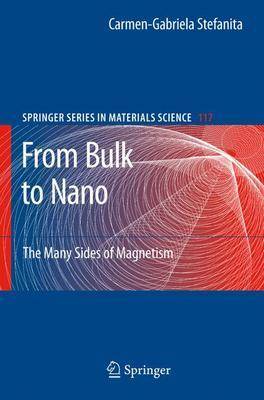Springer Series in Materials Science
1 primary work
Book 117
The inspiration for this book can be traced back many years to two major works that in?uenced the author's outlook on applied physics: FerromagnetismusbyR. Becker,W. D oring (Springer, Berlin 1939), and Ferromagnetism by R. M. Bozorth (IEEE Press, New York 1951). The former work is a collection of lectures held in the 1930s for 'technicians' attending a technical college. The German language in which the work was originally written was extremely convenient for the author of this present book, as it was for a long time the only comfortable technical language in an English speaking environment. Later on, upon encountering the work by Bozorth, it was a relief to see the clarity and eloquence of the subjects presented in English, despite the impressive thickness of the book. Bozorth's work still constitutes a practical review for anyone in a multidisciplinary industry who comes across the various manifestations of magnetism. The popularity of both works is so enduring that they are regarded as highly academic, and yet extremely readable, a reference in their own right, still attracting many readers these days in industry and academia. The ?eld of magnetism progressed immensely in the twentieth century, and shows no signs of slowing down in the present one. It has become so vast that it is quite often viewed only in its parts, rather than as a whole. In today'smyriadofapplications,especiallyonananoscale,andtheirchangeable implications mostly on a macroscale, it often seems that di?erent aspects of reported work on magnetism are scattered and unrelated.
